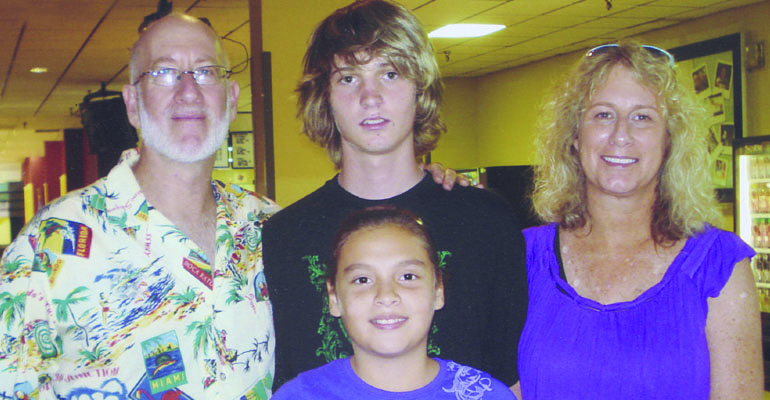Adoption had never been part of my world. The youngest of three boys in a nuclear mid-century family, I never doubted that I was my parents’ “real child.” I didn’t know anyone who was adopted. In fact, I was well into adulthood before I ever thought about it; several years into our marriage, Randi, and I accepted the fact that the only way we would become parents was through adoption.
Even while we were in the adoption process, the whole thing felt mechanical, something outside of me. That changed when, during a dinner with our families, the conversation turned to the biological child we would never have. We wondered what he or she might have looked like. Later, I cried in the bathroom for the child I would never father, and for myself. I knew then that adoption was built upon loss.
Shortly after, we adopted our first child, Zachary, and then our daughter, Rebecca. It was only after adopting that my sense of loss was buffered by the joy of being a parent. While I was appreciative for the gift of our children, and thankful that their birth mothers entrusted us with their care, I never dwelled on either of the women, the loss they felt, or the specter of abandonment that had entered our lives.
Every Christmas, we dutifully sent pictures to Rebecca’s birth mother. By the time Zachary was old enough to appreciate the letters that came randomly from his birth mom, they had stopped coming. We all moved on, or so we thought. Randi and I grew aware that, in spite of our efforts to love and provide for our children, they were grieving.
Reaching Out
On our late-evening walks, Randi and I spoke about the siblings that we knew Rebecca and Zachary had, but perhaps would never meet. Our children asked about their siblings on numerous occasions, and we promised that we would try to unite them once they turned 18.
In spite of this, Randi and I decided to reach out to the family that adopted Rebecca’s sister, Maxine. We had phone conversations with Sue and Craig, Maxine’s adoptive parents, and the girls began sharing pictures. As it turned out, Maxine’s older brother, Miles, also adopted, was around the same age as Zach, and the two boys began an e-mail relationship, sharing similar tastes in music, clothes, and, of course, girls. It was amazing to see one of Zach’s e-mails to Miles: “Since your sister is my sister’s sister, we are like brothers.” We didn’t realize it at the time, but our family was growing, relationships were being built, hearts were being mended.
Soon after Randi and I planned a visit with the families, we worried that Zach might feel left out by his sister’s impending meeting with her biological sister. We turned to our agency, and, with the help of a private investigator, we located his biological mother. Through our agency, she sent a letter and photos. It took Zach time to gather the will to write back, but he did. Now he knows her true heart. The other night, Zach spoke to his birth mother and his half-siblings for the first time. At the same time, Rebecca and our family are growing closer to Maxine and her family with every visit.
Adoption is no longer something that happens to other people. It is a thread that weaves through my life and binds me to an ever-growing family. For me, adoption is not just about loss. It is a way to love and be loved, to heal and be healed — a way toward wholeness.



